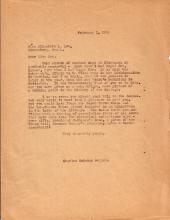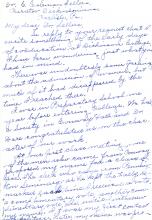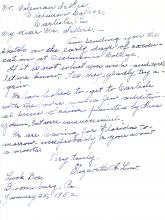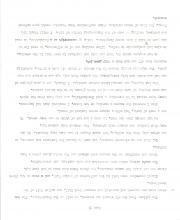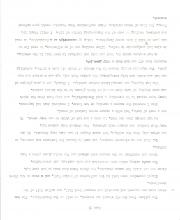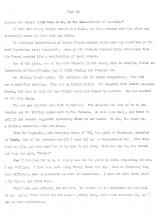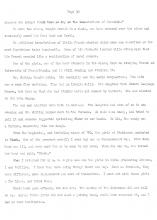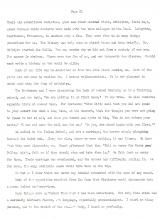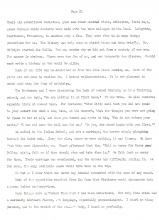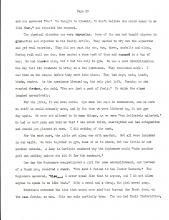I Was a Coed
Elizabeth Anna Low Agrees to write her Personal Account of Early Coeducation at Dickinson College
In a letter to Dickinson College Historian Charles Coleman Sellers, Elizabeth Anna Low agrees to write her account of early coeducation at Dickinson College. However, she asked Sellers to be more clear on what he expected. In the letter, Low begins describing early coeducation at Dickinson. She explains that "there was undoubtedly some feeling about the admission of women, but much of it had disappeared by the time I reached there." Despite this statement, Low recalls an election in which her name was removed due to her gender and not being admitted to the literary societies.
"I was a Co-ed": President Reed Advises Early Female Students
In her memoir recounting her time at Dickinson, Elizabeth Low remembers President Reed advising female students not to pursue certain careers. According to Low, after reading her oration, President Reed, "using my manuscript as a foundation, he read and refuted, telling me some of the fundamental truths of life. I still thanked him. Today, the idea of a woman entering other profession than teaching would pass without comment."
"I was a Co-ed": The First Space for Female Students on Campus
In her memoir recounting her time at Dickinson, Elizabeth Low remembers the first space soley for female students at Dickinson College. According to Low, the room was on the first floor of Bosler, next to the chapel. According to Low, the room was created after Dr. Reed became the President of the College.
"I was a Co-ed": Female Students Rebel at Graduation
In her memoir recounting her time at Dickinson, Elizabeth Low remembers an instance in which female students rebeled at graduation and wore white. Prior to the rebelion, and much to the chagrin of many female students, all students were required to wear black gowns at graduation. Low, like other early women at Dickinson, detested the requirement. However, she was forced to wear the color to her own graduation.
"I was a Co-ed": The Lack of Early Women's Societies
In her 1951 memoir, Elizabeth A. Low remembers there being few early women's organizations at Dickinson College. She explained, "You may may wonder why we did not form a soceity of our own. The answer is obvious. There were too few of us, and our interests too diverse. Should each write a history not two would be alike."
"I was a Co-ed": Male Students Feared that Dickinson Would Become a Women's Institution
In her 1951 memoir, Elizabeth A. Low discusses the reaction of many male students to the institution of coeducation. According to Low, many male students rescented early female students. Low explains, "So far as I know there was never any scandal connected with the name of any co-ed. Much of the opposition resulted from the fear that Dickinson would degenerate into a young ladies seminary-type."
"I was a Co-ed": Female Students felt Alienated from College
In her memoir recounting her time at Dickinson, Elizabeth Low remembers how she felt alienated as an early female student at Dickinson College. Low wrote, "Dickinson stressed the idea that women were admitted through the front door, on the same footing as men. This was only partially true. The men had their fraternities, their old established societies, glee and other musical clubs, athletics, field days, games through which contacts were made with the best colleges in the land. They were free to do many things proscribed for us...

